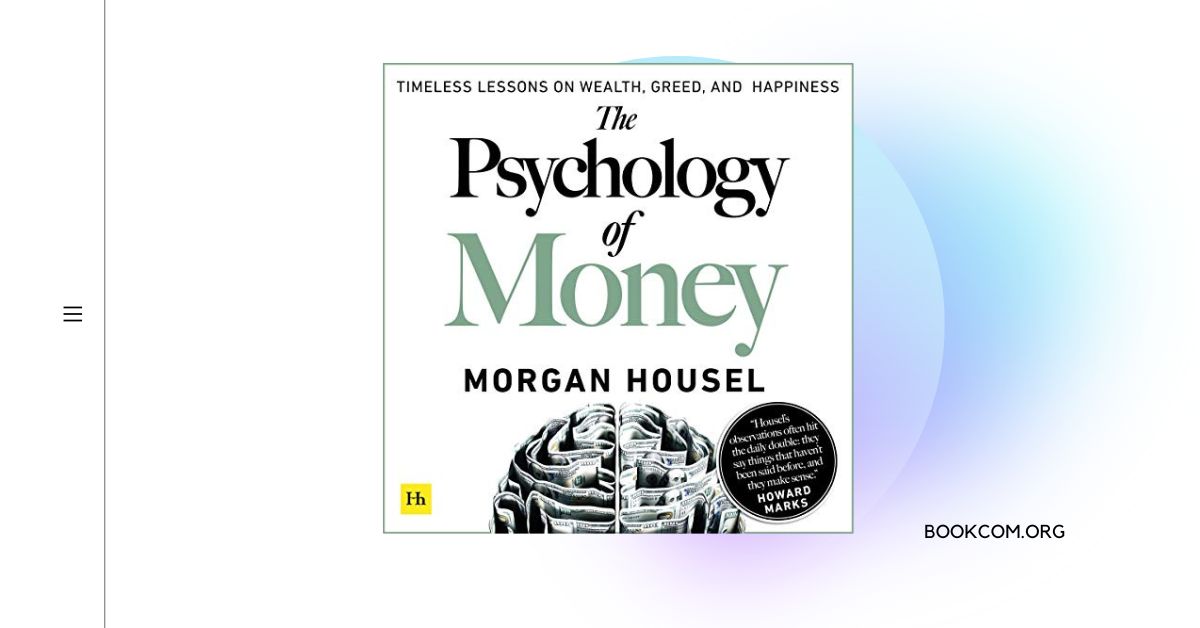“The Psychology of Money” by Morgan Housel is a captivating exploration of the complex relationship between money and human behavior. Drawing upon insights from psychology, history, and personal anecdotes, Housel delves into the various psychological factors that influence our financial decisions and ultimately shape our financial well-being.
Key Themes
The Role of Behavior: Housel emphasizes that financial success is not solely determined by knowledge or intelligence but rather by our behaviors and attitudes towards money. He highlights how our emotions, biases, and psychological tendencies often drive our financial decisions, sometimes leading to irrational choices and detrimental outcomes.
Long-Term Thinking: The book emphasizes the importance of adopting a long-term perspective when it comes to investing and wealth accumulation. Housel argues that patience, discipline, and a focus on sustainable wealth creation are key factors in achieving financial security and building wealth over time.
Risk and Uncertainty: Housel explores the concept of risk and the role it plays in financial decision-making. He emphasizes the importance of understanding and managing risk, as well as the need to embrace uncertainty as an inherent part of investing and financial planning.
Notable Concepts
Compound Interest: Housel highlights the remarkable power of compound interest as a wealth-building tool. He explains how small, consistent contributions and time can exponentially grow wealth, emphasizing the need to start investing early and stay invested for the long term.
The Value of Adaptability: The book emphasizes the importance of adaptability and flexibility in managing personal finances. Housel argues that being able to adapt to changing circumstances and make necessary adjustments is crucial for financial resilience and success.
The Impact of Narrative: Housel explores how narratives and stories shape our perception of money and influence our financial decisions. He emphasizes the need to critically evaluate the narratives we encounter and recognize their potential biases and limitations.
Actionable Insights
Focus on behavior: Housel encourages readers to reflect on their financial behaviors and attitudes, identifying areas for improvement and adopting healthier financial habits.
Prioritize long-term thinking: The book emphasizes the value of long-term thinking when it comes to financial planning and investing. Housel encourages readers to resist short-term temptations and focus on sustainable wealth creation over time.
Cultivate financial resilience: Housel emphasizes the importance of building financial resilience by diversifying income sources, managing debt effectively, and maintaining an emergency fund.
For More Information about the book, you can visit:



